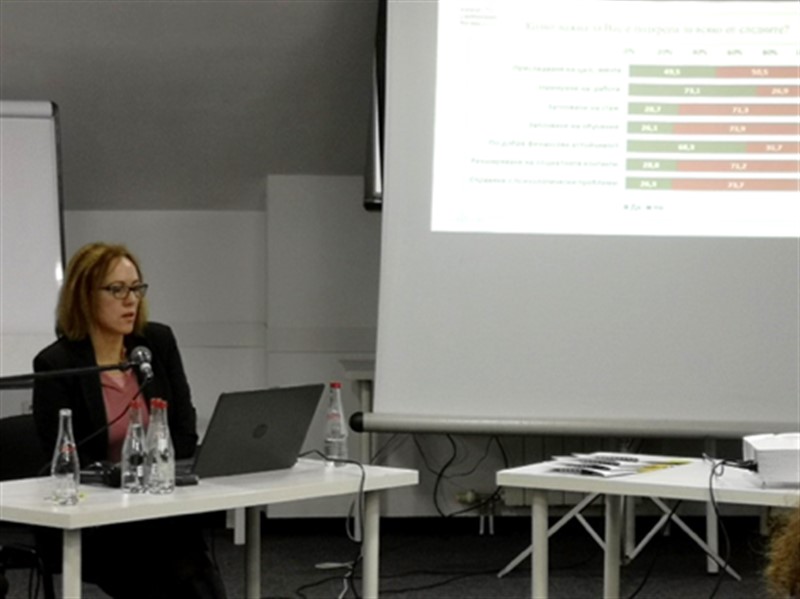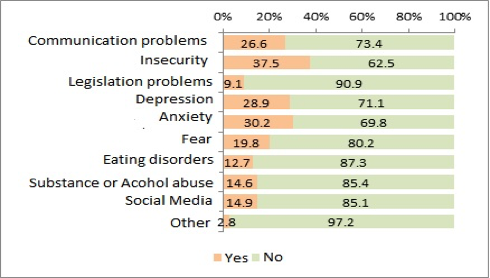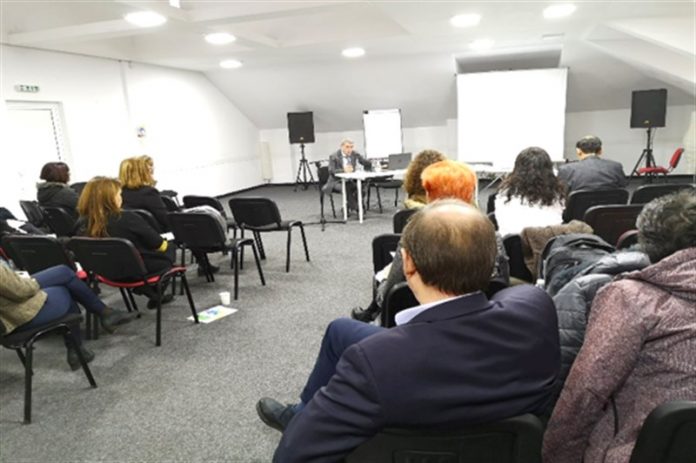On December 12, 2019, the Conference “Mental Health and NEET`s” was held, which presented the first data from the study on mental health of young people who do not work and study, as well as focus groups with employers and in-depth interviews with relatives and families of young people. The Conference was attended by representatives of state institutions, NGOs and professionals in the field of mental health care.
 The LIKE project examines the growing proportion of young people between 15 and 29 years of age, with mental health problems, who do not work or study. The survey was conducted in the period from 20th of July to 20th of September 2019 on a representative sample of the population in the country of 726 respondents among the capital, district cities, as well as in regional small towns and villages in Bulgaria.
The LIKE project examines the growing proportion of young people between 15 and 29 years of age, with mental health problems, who do not work or study. The survey was conducted in the period from 20th of July to 20th of September 2019 on a representative sample of the population in the country of 726 respondents among the capital, district cities, as well as in regional small towns and villages in Bulgaria.
The field survey was conducted with a questionnaire that included a demographic section and specific questions related to lifestyle, employment status, psychological attitudes, family relationships, environment, sources of information, health, and more. The information provided in the study will help to offer opportunities for active inclusion in employment and greater participation of young people in society.
The highest percentages are those with secondary education – 47.8 %. They were followed by the higher education holders – 29.5 %, primary – 17.1 % and with 4 % with initial. 1.7 % have no education. The largest part of the target group has completed secondary education – about half of those surveyed, and about 1/3 are university graduates. A huge part of unemployed young people who are not engaged in training are educated and are still outside the labor market.
Psychological Characteristics
 On the question of the nature of personal problems, the highest percentage (37.5%) answered “uncertainty”. Psychiatric disorders like depression and anxiety hold a significant proportion – about 30% for each of these disorders. If nutritional disorders and addictions are added, a significant proportion of mental health problems will emerge, which also explains the leading feeling of insecurity as a cause of personal problems.
On the question of the nature of personal problems, the highest percentage (37.5%) answered “uncertainty”. Psychiatric disorders like depression and anxiety hold a significant proportion – about 30% for each of these disorders. If nutritional disorders and addictions are added, a significant proportion of mental health problems will emerge, which also explains the leading feeling of insecurity as a cause of personal problems.
Family
Half of the respondents – 49 % of young people between 15 and 29 years of age live with their parents. The lack of sufficient financial resources to meet the daily needs forces young people to delay parental separation. As other studies show, poverty in children and young people is directly dependent on parental poverty – the so-called ‘Intergenerational poverty’ or ‘intergenerational poverty inheritance’.
Conclusions and discussion of the received data
The results of the research are framing a specific profile of the target group. The analysis of data shows the reasons for social maladaptation which can be observed in the group, are mainly lack of motivation for an active life, integration into the social environment and personal development. This lack of motivation is caused by complex reasons which outline the psychological profile of a young man, without ambition reconciled with the financial state in which he is, with intentions for activity in the future. Most of these young people live with their parents, which impacts their social life. Their world is more or less closed, confined in the family and close environment of peers (probably in the same situation as themselves). Their horizons of dreams and interests are relatively limited. The sources of information do not extend beyond the environment in which they live, and hence limit their interests and intentions for the future.
The causes of this condition are complex, but a large part of them is due to some psychological distress from the range of anxiety disorders and moderate depressive states. Increasing the unemployment period increases the likelihood of using substance or alcohol. If the young people who are unemployed under 1 year of age, are one in ten substance users, those who have been unemployed for between one and five years or more than five years are already two out of ten. Lack of work and social environment leads to a closure in a virtual reality world. Each one out of ten young people who neither study nor work, recognizes their dependence on the Internet and social networks as a personal problem.
In conclusion, the problems of young people that emerge from this study are primarily psychological and cultural. Socio-economic factors and health status are rather secondary phenomena, although their interaction in the course of one’s career is essential. This raises the question of interventions that focus mainly on the upbringing and education of these young people, as well as impact on the family environment, which, although supportive, prove incapable of overcoming the basic passivity and lack of life motivation of these people. Creating a motivating social environment will be a key factor in overcoming and breaking the vicious circles created in the majority of young people surveyed. In this sense, the objectives set by the project as well as the provided interventions are completely in line with the findings of the research phase and could be expected to be adequate and effective.


